In this article, learn:
- What is the HITECH Act?
- How do medical equipment recycling and data destruction support HITECH compliance?
- How does Securis assist with the proper disposal of electronic medical equipment?
 In the digital age, where data reigns supreme and information proliferates across numerous platforms and devices, safeguarding sensitive medical data is paramount. The Health Information Technology for Economic and Clinical Health Act (HITECH) is a crucial piece of legislation in the United States that aims to enhance the protection of electronic health information. Among its provisions lies a critical aspect often overlooked: the secure and proper disposal of electronic medical equipment, including secure data destruction.
In the digital age, where data reigns supreme and information proliferates across numerous platforms and devices, safeguarding sensitive medical data is paramount. The Health Information Technology for Economic and Clinical Health Act (HITECH) is a crucial piece of legislation in the United States that aims to enhance the protection of electronic health information. Among its provisions lies a critical aspect often overlooked: the secure and proper disposal of electronic medical equipment, including secure data destruction.
Mishandling sensitive patient information can lead to severe repercussions, including privacy breaches and financial penalties. Securely destroying medical records involves the systematic and irreversible deletion of data from electronic devices, such as computer hard drives or data storage devices in medical equipment, to prevent unauthorized access or retrieval. This process is essential for protecting patient confidentiality and HITECH compliance.
What Is the HITECH Act?
 Enacted in 2009, the HITECH Act was introduced as part of the American Recovery and Reinvestment Act (ARRA). Its primary objective was to promote the adoption and meaningful use of health information technology, thereby improving healthcare quality, safety, and efficiency.
Enacted in 2009, the HITECH Act was introduced as part of the American Recovery and Reinvestment Act (ARRA). Its primary objective was to promote the adoption and meaningful use of health information technology, thereby improving healthcare quality, safety, and efficiency.
Among its various provisions, the HITECH Act strengthened the privacy and security protections outlined in the Health Insurance Portability and Accountability Act (HIPAA). It extended the scope of HIPAA by encompassing business associates of covered entities, mandating stricter enforcement, and imposing substantial penalties for non-compliance.
Key Provisions of the HITECH Act Include:
- Expansion of HIPAA Regulations:
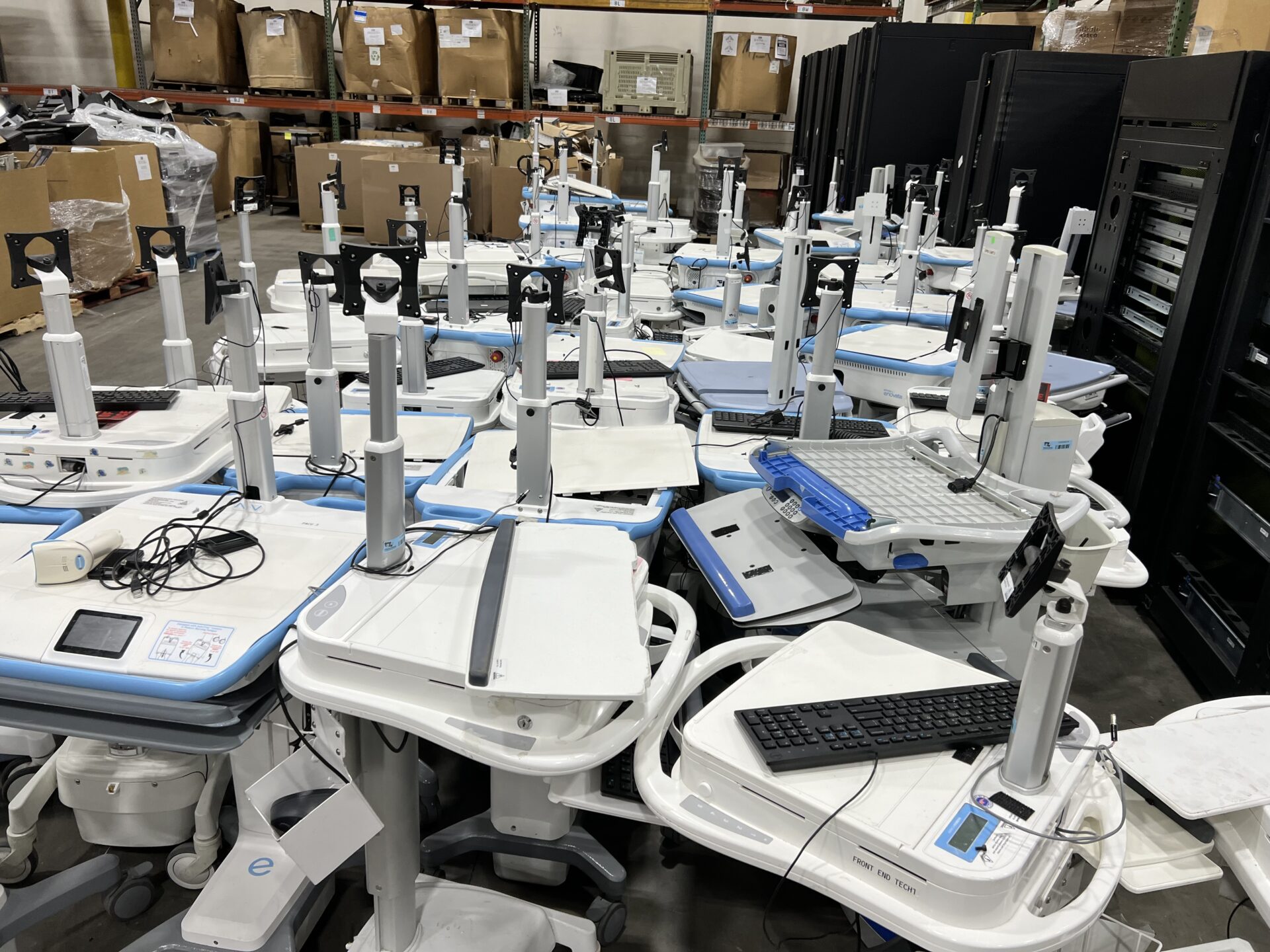 The HITECH Act extends the scope of HIPAA by imposing stricter requirements on covered entities and their business associates regarding the security and privacy of electronic health information.
The HITECH Act extends the scope of HIPAA by imposing stricter requirements on covered entities and their business associates regarding the security and privacy of electronic health information.
- Breach Notification Requirements:
Covered entities must notify individuals and relevant authorities in case of a breach involving their protected health information (PHI), promoting transparency and accountability.
- Enforcement and Penalties:
The HITECH Act introduced enhanced enforcement mechanisms and increased penalties for HIPAA violations, including fines for non-compliance with data security standards.
HITECH Compliance and Secure Data Destruction
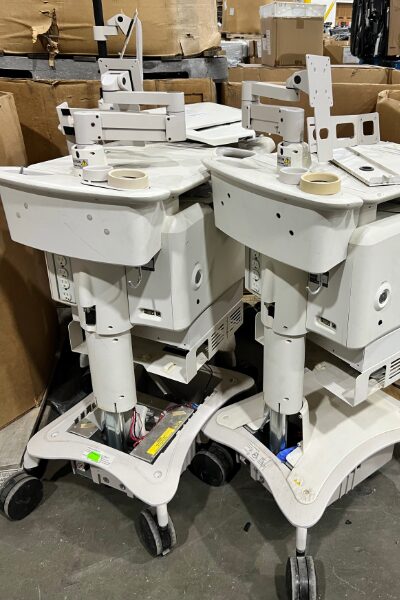 Among the HITECH Act’s requirements lies a critical aspect often overlooked: the secure destruction of data on medical equipment and any computers or electronic devices used in a medical setting.
Among the HITECH Act’s requirements lies a critical aspect often overlooked: the secure destruction of data on medical equipment and any computers or electronic devices used in a medical setting.
Mishandling sensitive patient health information can lead to severe repercussions, including privacy breaches and financial penalties.
Secure data destruction involves the systematic and irreversible deletion of data from electronic devices, such as computer hard drives or data storage devices in medical equipment, to prevent unauthorized access or retrieval. This process is essential for protecting patient confidentiality and maintaining HITECH compliance.
Here’s how the HITECH Act is relevant to secure medical equipment recycling and data destruction:
- Protection of Patient Privacy:
The HITECH Act emphasizes the importance of protecting the privacy and confidentiality of patient health information. Securely destroying data ensures that sensitive information stored on computers and medical equipment is inaccessible to unauthorized individuals.
- Compliance With Regulatory Requirements:
Healthcare organizations must comply with the security and privacy standards outlined in the HITECH Act to avoid penalties and maintain regulatory compliance. Secure data destruction is crucial to these requirements, demonstrating adherence to best practices in safeguarding electronic health information.
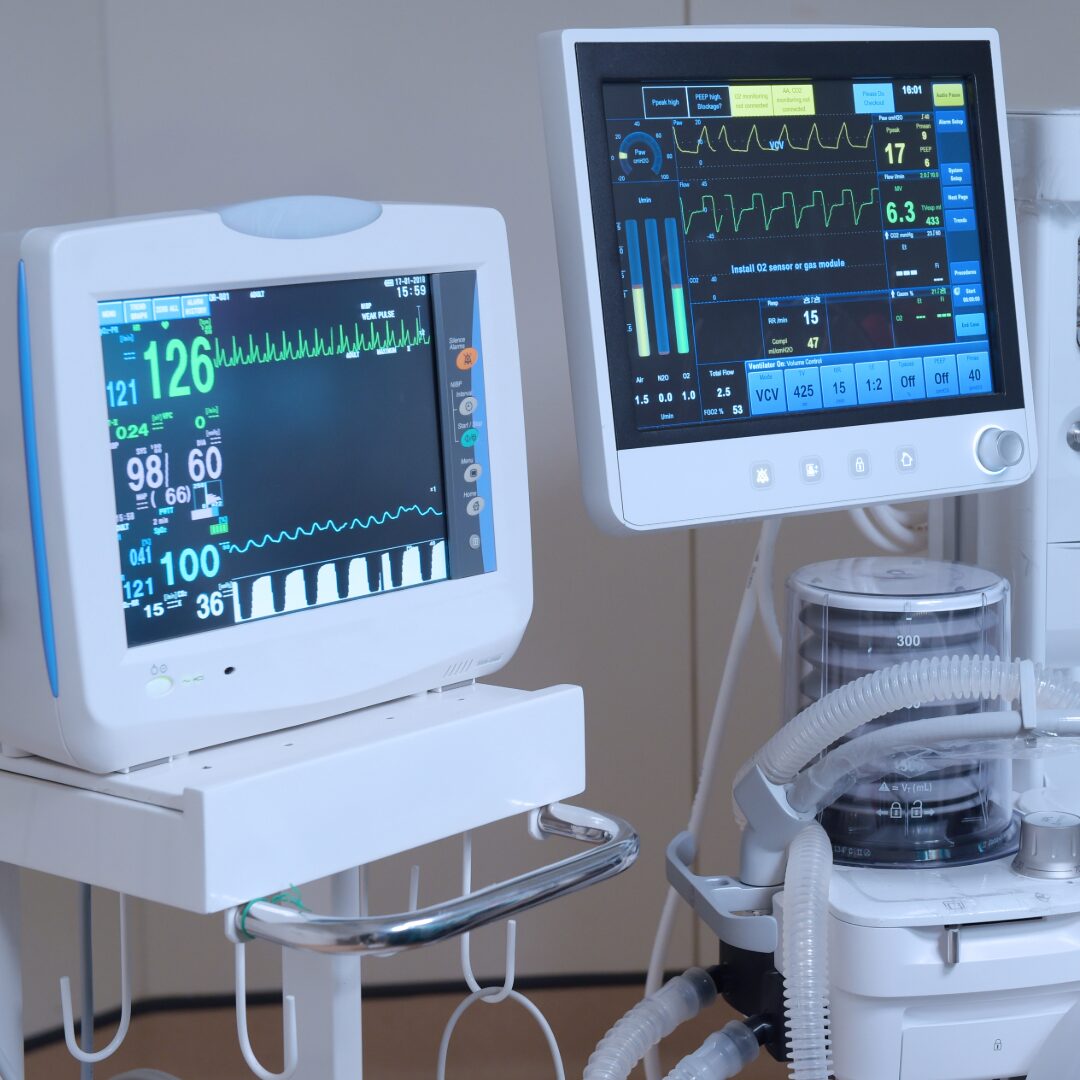 Risk Management and Data Breach Prevention:
Risk Management and Data Breach Prevention:
Healthcare providers can mitigate the risk of data breaches and unauthorized access to patient information by implementing proper data destruction protocols. This proactive approach aligns with the HITECH Act’s objectives of enhancing data security and protecting individuals’ rights to privacy.
- Lifecycle Management of Medical Equipment:
Medical devices and equipment often contain sensitive patient data, such as electronic health records (EHRs) or diagnostic images. When decommissioning or disposing of such equipment, healthcare facilities must ensure that all data stored on these devices is securely erased to prevent potential data breaches.
Securis Ensures HIPAA & HITECH Act Compliance With Reliable Medical Equipment Recycling Services
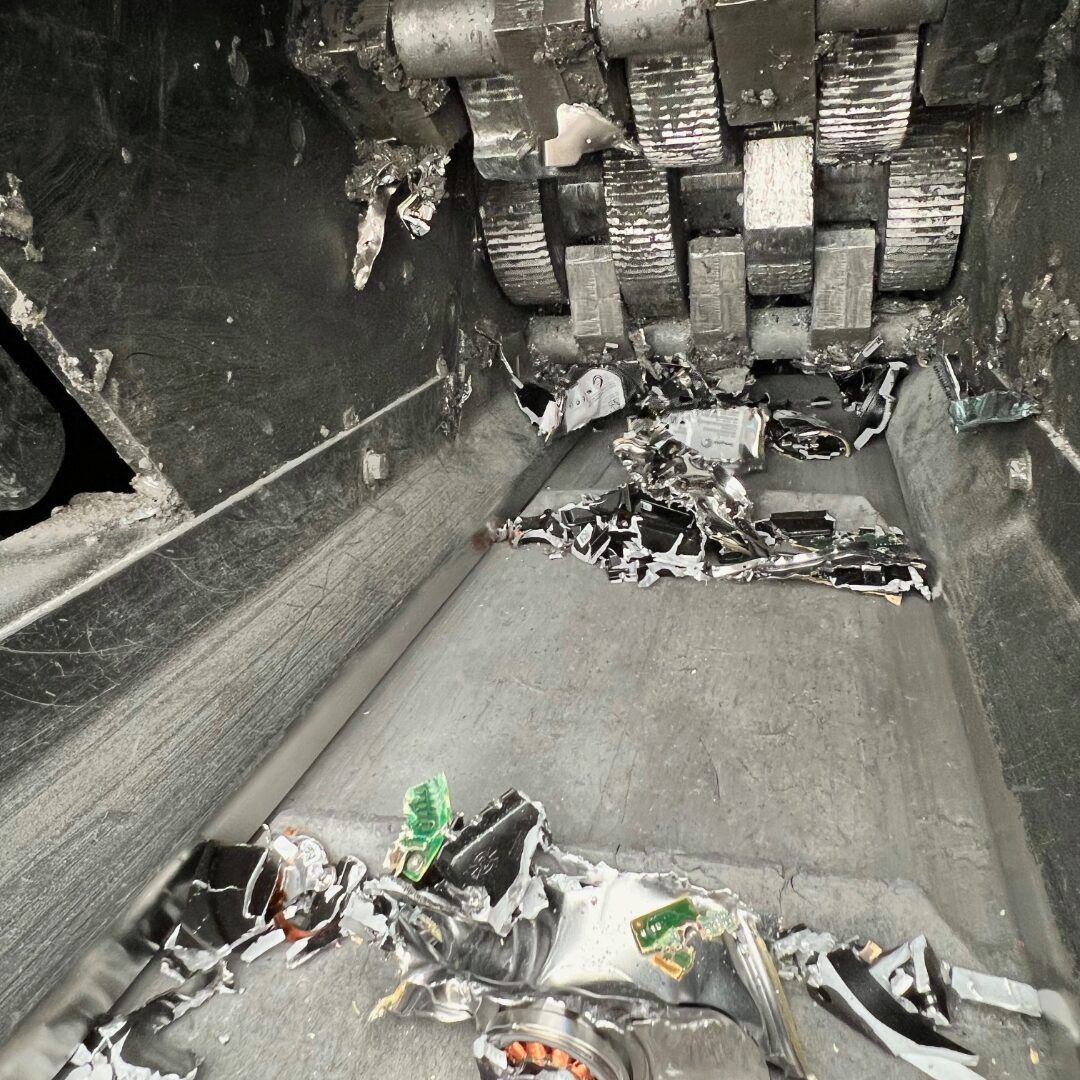 As healthcare organizations continue to embrace innovative digital technologies to enhance patient care and administrative efficiency, protecting electronic health information will remain a top priority.
As healthcare organizations continue to embrace innovative digital technologies to enhance patient care and administrative efficiency, protecting electronic health information will remain a top priority.
The HITECH Act serves as a cornerstone in safeguarding patients’ medical records and privacy, with provisions that extend to secure data destructionon computers and hard drives. This includes the encryption and transmission of data and its disposal at the end of its lifecycle.
Secure medical equipment recycling and data destruction are essential to mitigate the risk of data breaches and safeguard patient privacy. When these electronic devices reach the end of their usefulness or are decommissioned, it is imperative to ensure that any stored electronic information is irreversibly erased to mitigate the risk of unauthorized access or data breaches.
By working with a fully compliant and experienced company like Securis, healthcare entities can uphold their obligations under the HITECH Act while fostering trust among patients and stakeholders in the digital healthcare landscape. Our transparent and trusted process from project analysis to project completion guarantees the proper disposal of electronic medical equipment and the secure destruction of its data.i.
We invite you to learn more about the data destruction process at Securis and how we can fulfill your medical asset disposal project.
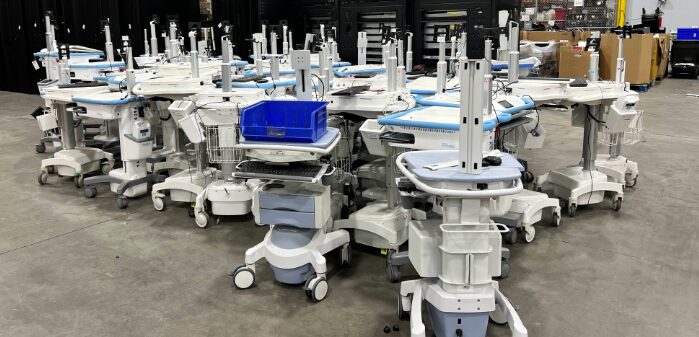

 Every year, companies dispose of countless tons of electronic waste (also known as e-waste) often with little consideration for environmental consequences. In fact, according to the World Economic Forum, “The United States generates
Every year, companies dispose of countless tons of electronic waste (also known as e-waste) often with little consideration for environmental consequences. In fact, according to the World Economic Forum, “The United States generates 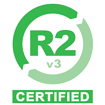 The best way to increase your ESG score when you are ready to dispose of end-of-life equipment is to make sure that you are working with an
The best way to increase your ESG score when you are ready to dispose of end-of-life equipment is to make sure that you are working with an 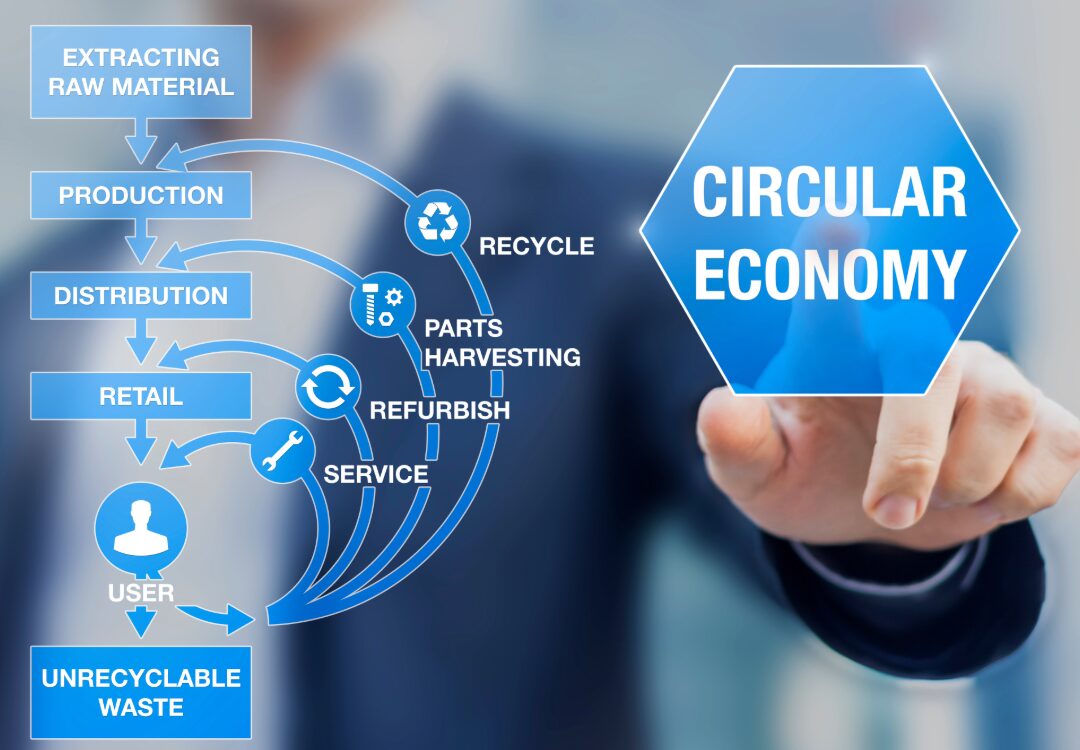
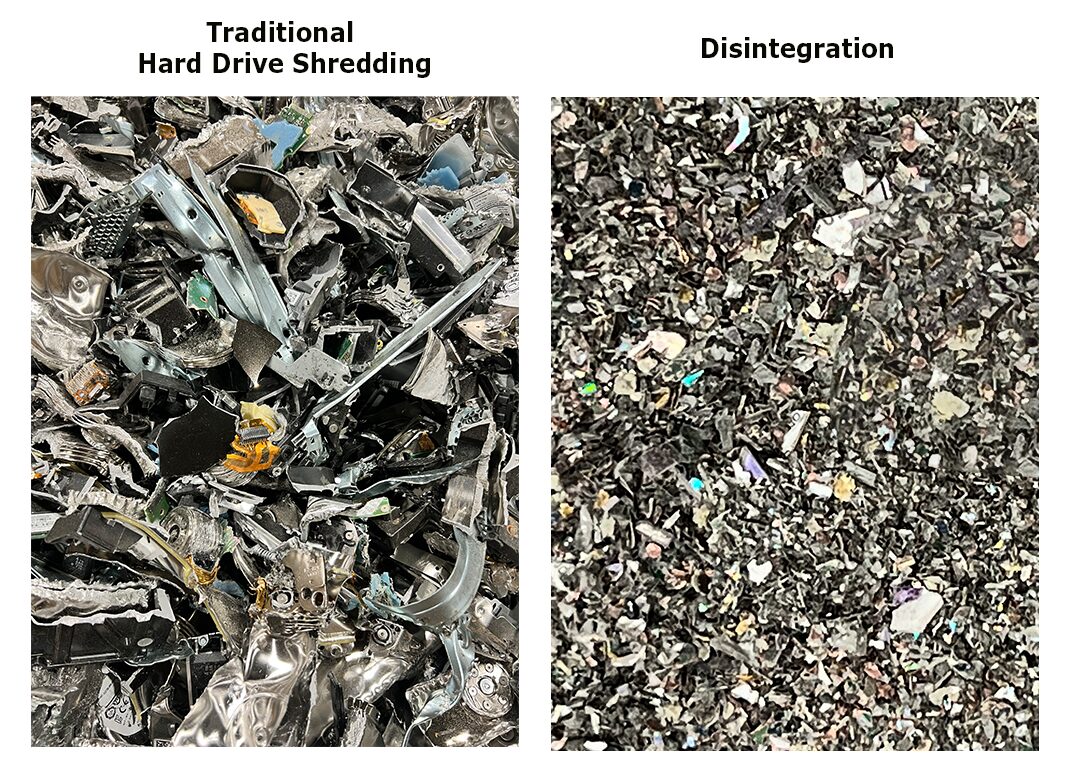 Partnering with a certified IT asset disposition (ITAD) specialist like Securis can ensure that data is securely destroyed to NSA standards before equipment is decommissioned.
Partnering with a certified IT asset disposition (ITAD) specialist like Securis can ensure that data is securely destroyed to NSA standards before equipment is decommissioned. 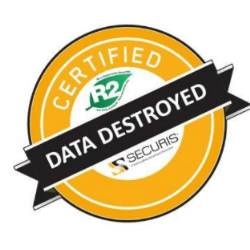 Securis Makes the Following Environmental Commitments:
Securis Makes the Following Environmental Commitments:  Build a Sustainable Future & Boost Your ESG Score
Build a Sustainable Future & Boost Your ESG Score